- Fintech Is Femme
- Posts
- 🤑 Fintech For Good
🤑 Fintech For Good
Why Inclusion Is Fintech’s Moat And How Wysh Built the Blueprint — Live from Money20/20.
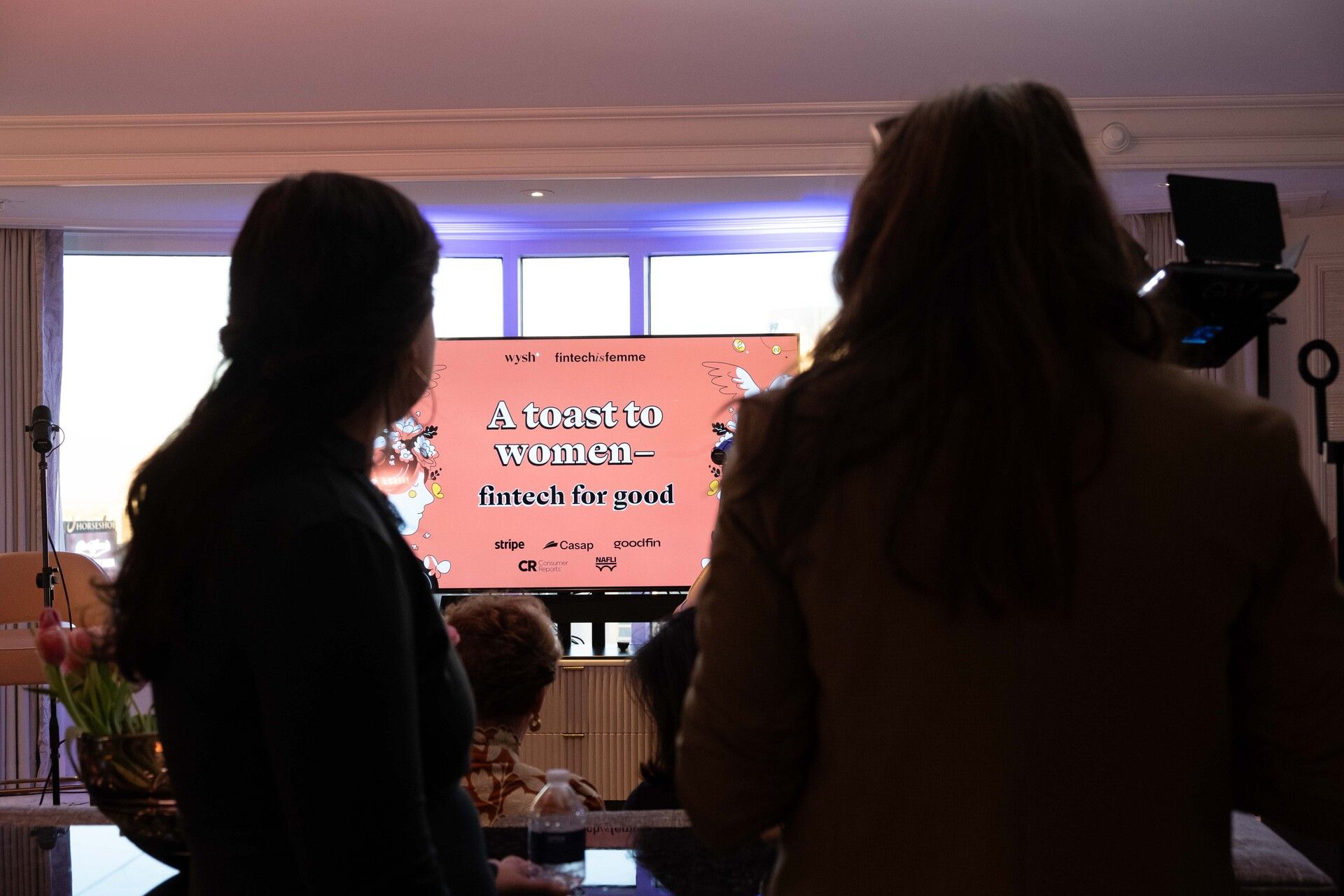
Hey, fintech fam! 💜
Every week, I sit down to write this newsletter with one goal in mind: to make sense of where fintech is really going — beneath the headlines, beyond the hype cycles, and deeper than the endless noise.
And this week, a theme kept resurfacing across every conversation, every interview, every event stage, and every story I reported:
Fintech’s future isn’t being built by the highest raises.
It’s being built by the ones who are paying attention.
The signal is clear: Fintech for good is no longer a side mission — it’s the blueprint.
And honestly? I find so much hope in that.
Because when you zoom out — past the market cycles, past the chaos of the news cycle, past the noise — you start to see that what we’re really building together is an economic future grounded in humanity.
A future where inclusion isn’t an afterthought, but the engine.
A future where technology doesn’t replace connection — it scales it.
A future that feels less like a race… and more like a legacy.
So wherever this week finds you — scaling, resting, dreaming, pitching, building, or simply trying again — I want you to know you’re part of something real, something growing, something that matters.
Let’s dive in. ✨
INNOVATION
Why Inclusion Is Fintech’s Moat — And How Wysh Built the Blueprint
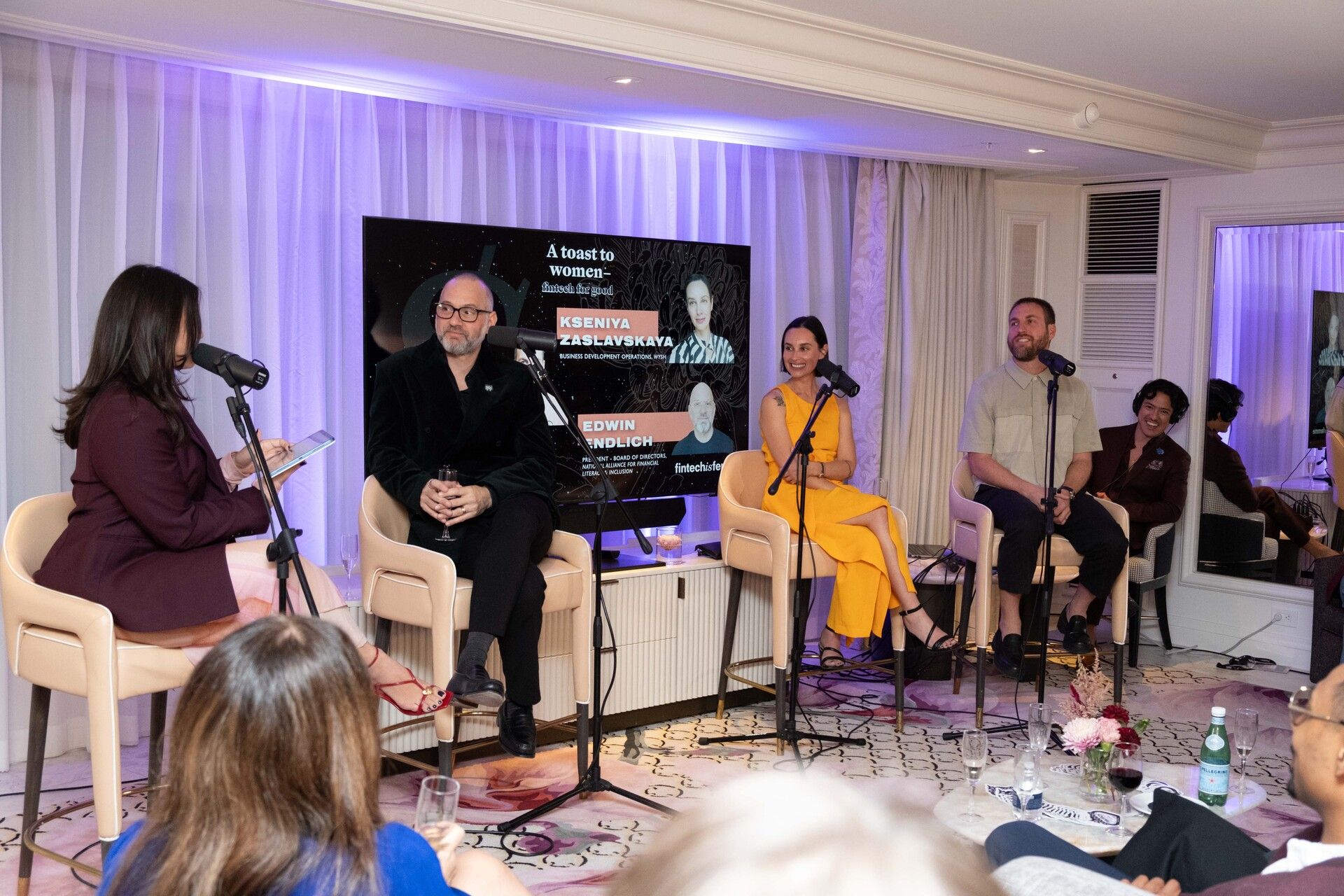
Live from the Fintech Penthouse at Money20/20
Spend enough time studying fintech’s undercurrents — as I have this year — and you start to see the pattern. The industry likes to crown a “next big thing” every quarter: faster payments, stablecoins, AI everything.
Yes, the next frontier gets packaged as the next headline. Those matter — but they aren’t the story.
Look closer.
The most important innovation in fintech right now is structural.
It’s inclusion — not the PR version, but the kind that reshapes business models and unlocks entirely new markets.
Because the fundamental layer powering every meaningful fintech innovation right now is inclusion.
Not as a CSR talking point.
Not as a “nice-to-have.”
But as a competitive moat.
Because the fintechs winning today have one thing in common:
They are not waiting for underserved communities to “enter the system.”
They’re rebuilding the system to meet them where they already are.
And few companies embody this shift more clearly than Wysh — the embedded life-insurance platform that not only reimagined an entire product category but built a nonprofit alongside it, won a Money20/20 Financial Inclusion Award, and is actively rewriting what “Fintech for Good” looks like in practice.
In October, during Money20/20, I sat down with Wysh’s leadership team — founder & CEO Alexander Matjanec, NAFLI president Edwin Endlich, and BD operations lead Kseniya Zaslavskaya — for a live recording of my Humans of Fintech podcast inside the Fintech Is Femme penthouse.
It was one of the most honest, human, and downright real conversations I’ve had on the future of financial inclusion.
Here’s what I learned — and why I believe Wysh is a blueprint for the next decade of fintech.
The Future of Fintech for Good Isn’t Theory — It’s Lived Experience
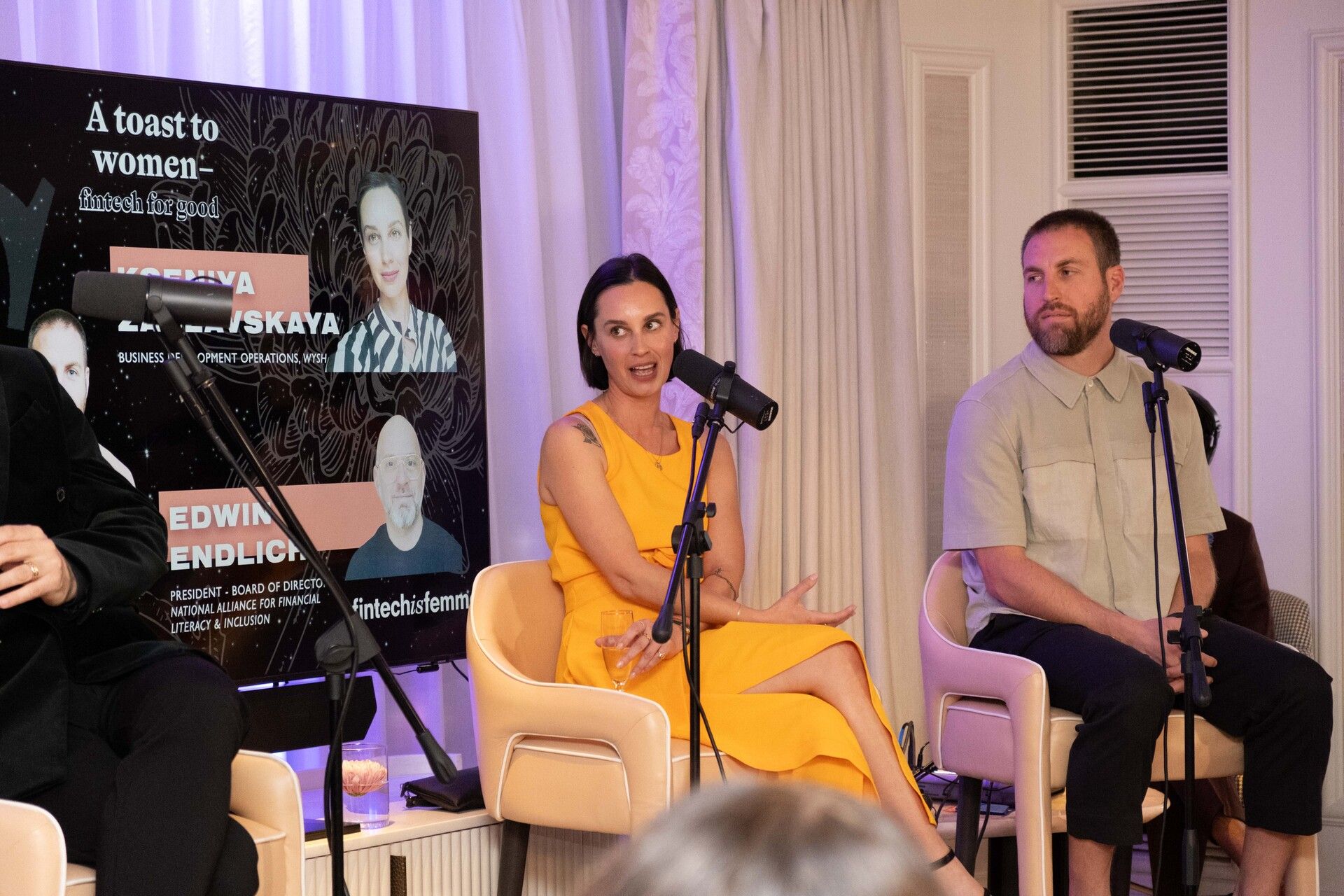
Kseniya Zaslavskaya, Business Development Operations Manager, Wysh
What makes Wysh different isn’t just its technology — it’s the origin stories behind it.
Because inclusion, when done well, doesn’t come from a market report.
It comes from lived experience.
And that was obvious from the first moment of our conversation.
Zaslavskaya shared the scene that shaped her entire mission: a nine-year-old sitting at the kitchen table translating 401(k) documents, bank statements, and cable bills for her immigrant parents.
“I had no idea what any of it meant,” she said. “But I knew my family depended on me to navigate a system that wasn’t built for us.”
That’s not a strategy slide.
That’s reality for millions of Americans.
Endlich’s story was equally powerful — and heartbreaking.
“My mother was a brilliant fintech founder,” he said. “I’m here because of her legacy. But at the end of her life, navigating her own financial paperwork was comically complicated. She thought she was doing something wrong. But the system was failing her.”
This is what “underserved” actually looks like.
Not just low-income communities — but everyone pushed out by complexity, opacity, and outdated systems.
And it’s what motivated this team to build something fundamentally different.
Rebuilding a Broken Insurance Category — One Embedded Layer at a Time
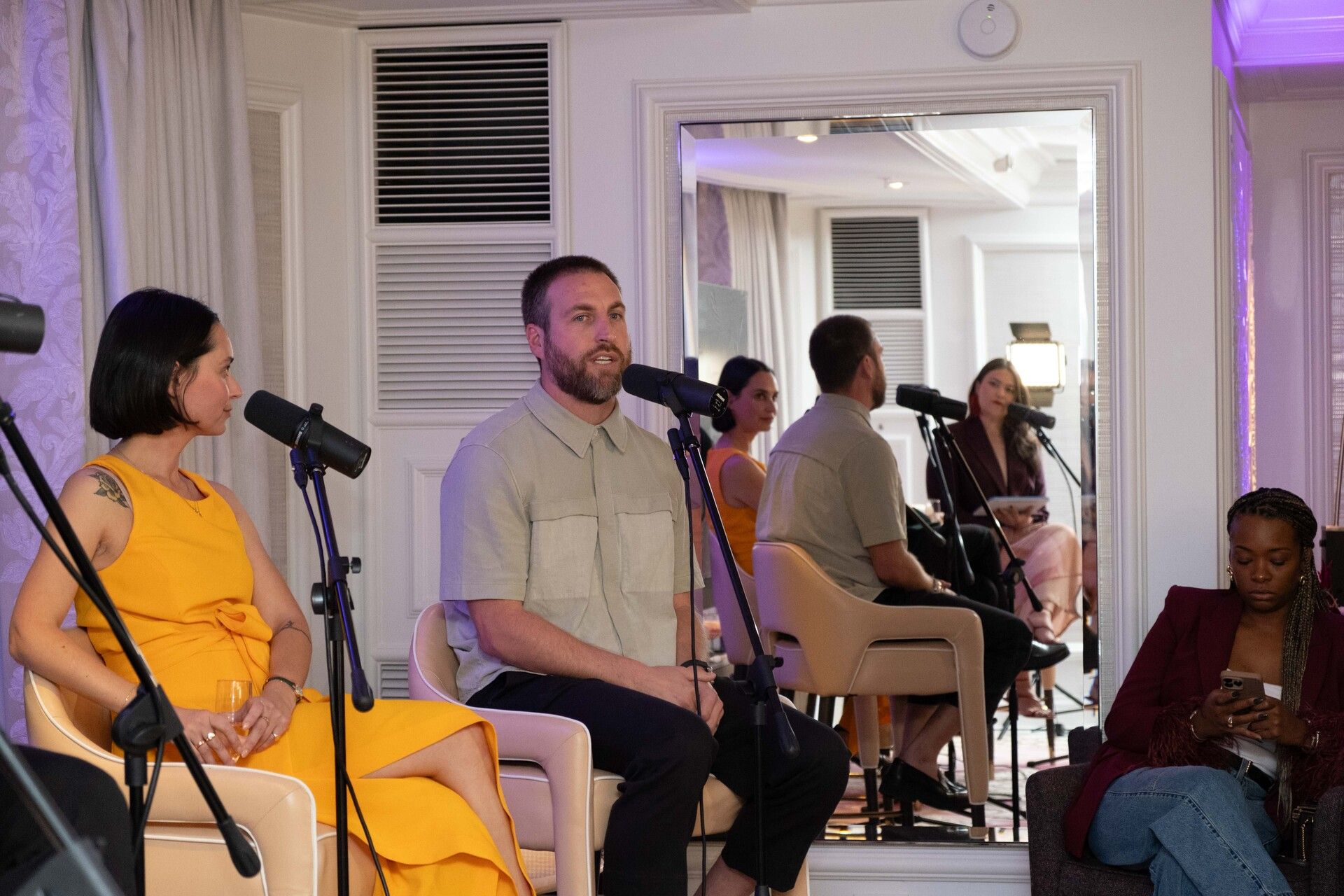
Alexander Matjanec, Founder & CEO, Wysh
Life insurance is one of the most misunderstood categories in all of financial services.
It’s seen as expensive.
It’s seen as confusing.
And, as Matjanec explained, it systematically excludes people who need it most.
“Almost 40% of Americans will be denied traditional life insurance,” he said. “You can’t solve a protection gap when the industry pushes people away.”
So Wysh flipped the model.
Instead of forcing consumers to go seek out life insurance, Wysh embedded micro life insurance directly into people’s deposit accounts.
Save more → unlock protection.
Bank with us → get coverage automatically.
“No medical exams. No underwriting hoops,” Matjanec told the room. “Just protection you don’t have to fight for.”
It sounds simple.
It’s radical.
Especially in a category where innovation has been stagnant for 160 years.
Matjanec put it bluntly:
“Insurance is a non-patentable industry. Nothing has changed. So we threw out everything regulators used to determine eligibility and said: we’re just going to give coverage to the people who need it.”
That’s right, Matjanec had to lobby with state regulators to get this product approved.
And perhaps the most stunning part?
Regulators said yes.
“It was the moment I thought — holy shit, we’re really doing this,” Matjanec said. “Now we just had to make sure we didn’t go out of business.”
Spoiler: they didn’t.
Instead, they built a movement.
The Sneaky, Brilliant Strategy Behind NAFLI
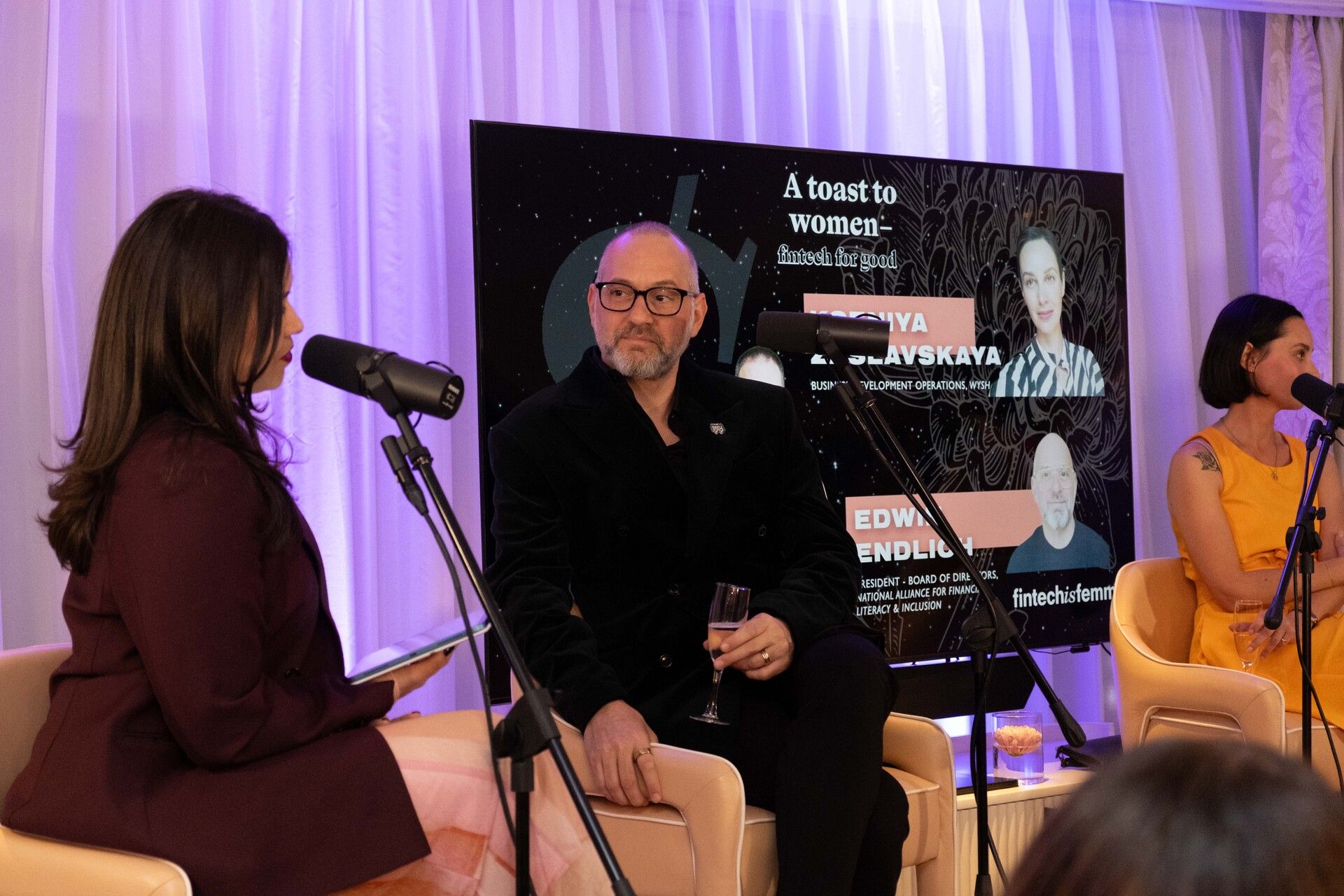
Edwin Endlich, President of the National Alliance for Financial Literacy and Inclusion and Chief Marketing and Creative Officer, Wyh
One of my favorite moments of the entire night came from Endlich, who described his nonprofit strategy with the kind of mischievous honesty you rarely hear in fintech.
“When you set out to do good things,” he said, “sometimes you have to be a little sneaky.”
He meant it lovingly.
Because while Wysh builds the tools — NAFLI, the National Alliance for Financial Literacy and Inclusion — builds the education and community infrastructure that the industry has ignored for decades.
“Fintechs want to go straight to the feature,” Endlich said. “But people need context. They need knowledge. They need someone on their side.”
Creating a nonprofit alongside a fintech is almost unheard of.
Banks don’t do it.
Big fintechs rarely do it.
And startups hardly ever have the resources.
But it worked — because it wasn’t a PR play. It was a strategic complement.
As Matjanec put it:
“There’s education that needs to be told — but within Wysh, that story didn’t make sense. NAFLI balances us.”
And it’s working.
NAFLI is quickly becoming a magnet for large financial institutions wanting to engage underserved communities — but without the bureaucracy, ego, and rigidity of traditional financial education frameworks.
Sometimes the Trojan horse is the strategy.
Inclusion Is the Path to Profitability
During our conversation, Matjanec shared an insight that stuck with me—and should scare traditional financial institutions.
Most banks believe customers choose them because they’re “stable.”
“So I ask them: what do you do to lean into that stability after someone signs up?” he said.
Silence.
Because after onboarding, most institutions immediately push consumers toward products that feel anything but stable — loans, credit, risk-based offerings.
Wysh flips that chronology.
You start with security.
Protection.
A baseline of stability that lets people take informed risks later.
And here’s what might shock the institutions that still treat inclusion like a charity cost:
Inclusion drives profitability.
As Zaslavskaya explained:
“We’re B2B2C. The ultimate goal is making sure the humans you serve feel protected — and loyal. When they know you’re thinking about their future, they stay.”
And they spend.
And they trust.
And they grow with you.
That’s not a soft metric.
That’s a retention strategy.
Why This Matters Right Now
We’re living through a moment where generational trust in financial institutions is eroding faster than ever:
40% of Americans believe they don’t have enough life insurance
Gen Z is defaulting toward decentralized finance
Economic volatility has heightened financial anxiety
AI is accelerating products faster than consumer understanding
And distrust is becoming normalized, not exceptional
Fintech has a choice:
Build faster, or build better.
Wysh is doing both — by anchoring every product decision in human need, cultural reality, and lived experience.
It’s not just fintech for good.
It’s fintech that lasts.
Inside the Fintech Is Femme Penthouse: A Moment That Said Everything
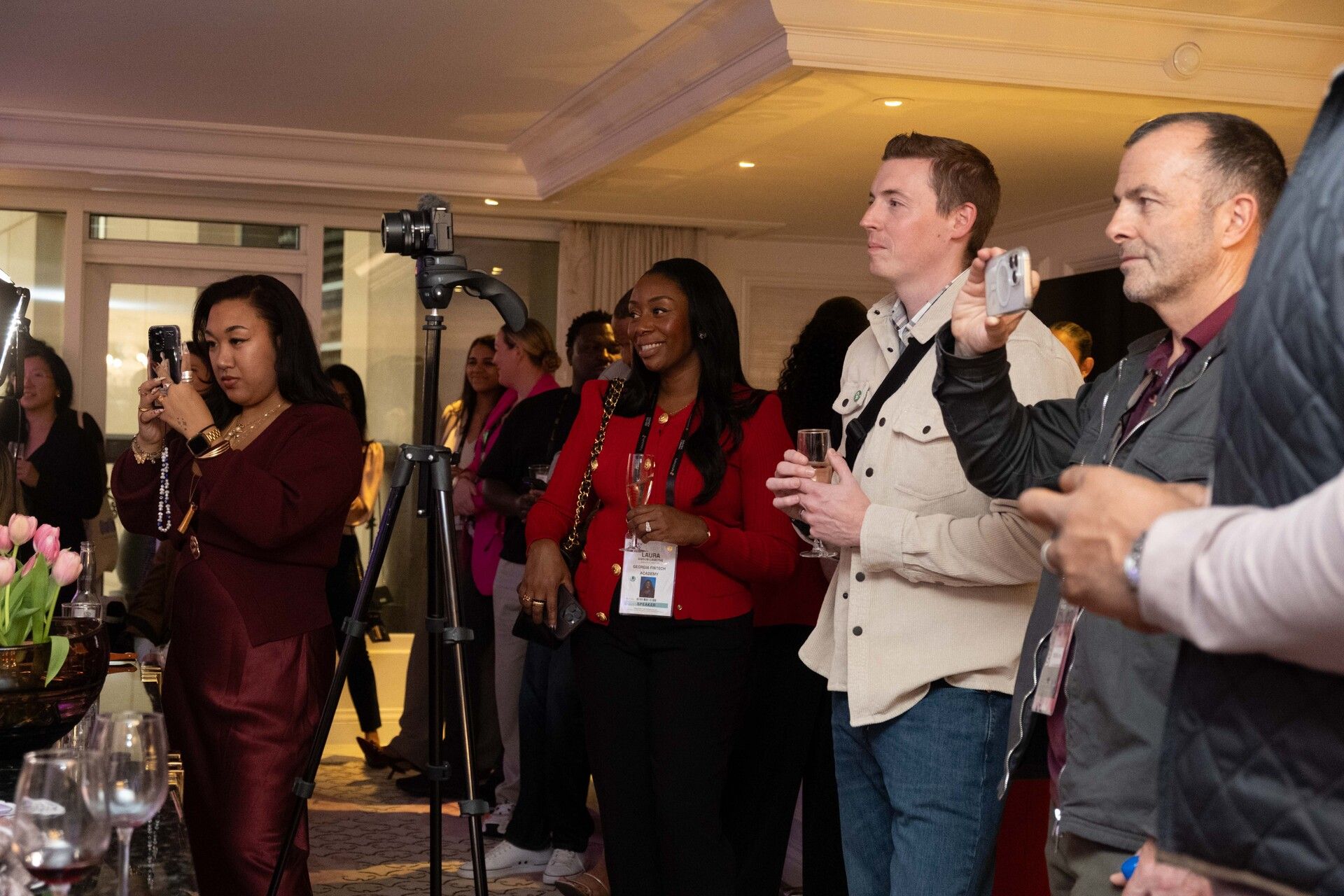
As we wrapped our live session in Las Vegas, I asked each guest the same final question:
“What was your holy-shit moment? The one where you realized you were actually doing it?”
Matjanec mentioned that regulators had given him the green light.
Zaslavskaya talked about customers explaining Wysh’s product back to them.
Endlich talked about recruiting the powerhouse leaders who ultimately made NAFLI possible.
But the biggest moment of the night wasn’t any single quote.
It was the room itself:
Founders, operators, execs, community builders — nodding, cheering, tearing up, raising their glasses.
Because Wysh isn’t just solving a financial problem.
It’s solving an emotional one.
It’s proving that inclusion isn’t the side quest.
It’s the business model.
And that when fintech leans into humanity — genuinely, not performatively — the market responds.
The Wysh Playbook (in One Sentence)
Start with protection. Build with empathy. Scale with inclusion.
Everything else flows from there.
If You Want the Whole Podcast Episode…
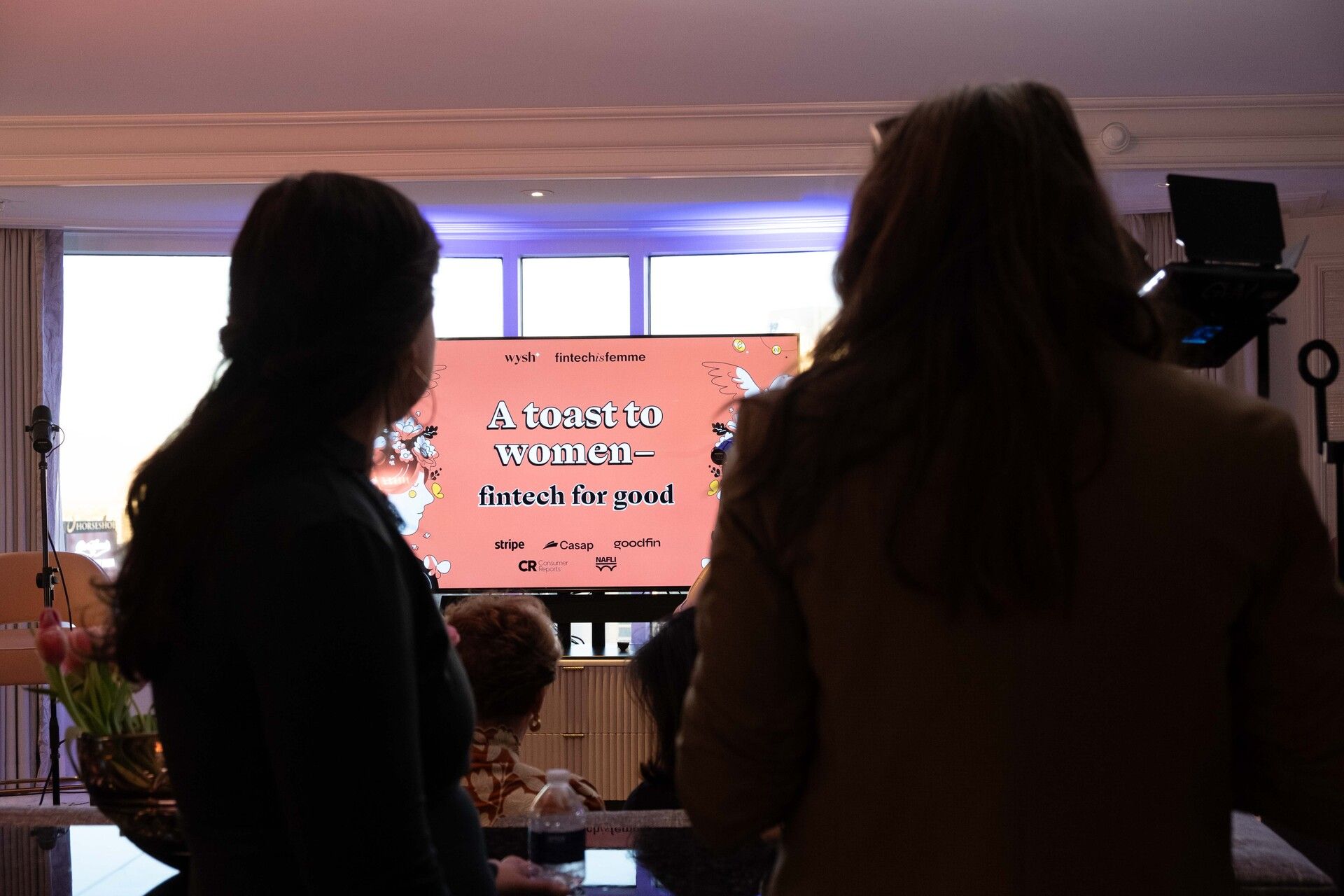
It’s live!
You can now tune into the whole conversation — unfiltered, human, and deeply real — wherever you get your podcasts.
Prefer to watch it?
The full video recording is now up on YouTube here.
This is one of my favorite Humans of Fintech episodes we’ve ever done — intimate, honest, and packed with insights on what Fintech for Good looks like when the people building it have lived the problems they’re solving.
Listen, go watch, and let me know what resonates.
WTF ELSE?
African fintech players seek new growth paths
Newly public Klarna swings to a loss as sales rise
Danish startup Flatpay joins the club of European fintech unicorns to track
US fintech Pipe drastically reduces workforce, reportedly by 50%
Fintech Ramp now valued at $32B after $300M raise led by Lightspeed
I WANT IT, I GOT IT
🎧 Today’s Watch: One of my favorite shows on Netflix right now — in the rare moments I get any downtime — is Physical: Asia. Think Olympic-level competition, but way cooler, way more dramatic, and stacked with athletes from across Asia, including my motherland, the Philippines. And yes… Manny Pacquiao is competing this season. It’s iconic. It’s chaotic. It scratches that competitive reality-show itch in the best way. If you need a dose of motivation to level up, push harder, or fight for what you believe in — this show will give you that spark.
📚 Today’s Read: Unshrinking: The Work of Becoming Whole by Tiffany Haynes — one of the most insightful pieces I’ve read all year — a brilliant exploration of a strategy she calls “integration.” It’s about aligning how we lead, work, build, and live in a way that feels whole — not split into compartments, not performative, not survival-mode… but true. Tiffany breaks this concept down with so much clarity and generosity that when I saw she even referenced my story as an example of integrated work and purpose, I immediately made it required reading for my team. And now, it’s required reading for you.
🧘♀️Today’s Self-Care: A 20-year friendship got the celebration it deserved last weekend when a dear childhood friend came to NYC to visit. We saw Wicked on Broadway together — and let me tell you, watching one of the most heartfelt, flawlessly executed stories about friendship while sitting next to someone who has truly changed you for good hits on an entirely different level. Did my eyes get misty? You bet.
FINTUNES
It just so happens that this column aligns with the premiere of Wicked For Good this week. Who else is obsessulated?

LET’S CONNECT
📰 Share this newsletter with a friend and start growing your network.
🔗 Connect with me on LinkedIn for daily insights on female leadership.
📚 The holidays are coming, in charge of purchasing office gifts? Grab my book, Fintech Feminists! It looks nice on the coffee table 😉
That wraps up today’s edition—thanks as always for reading! Until next time, keep innovating and challenging the status quo.
See you Thursday!
Love,
Nicole 💜